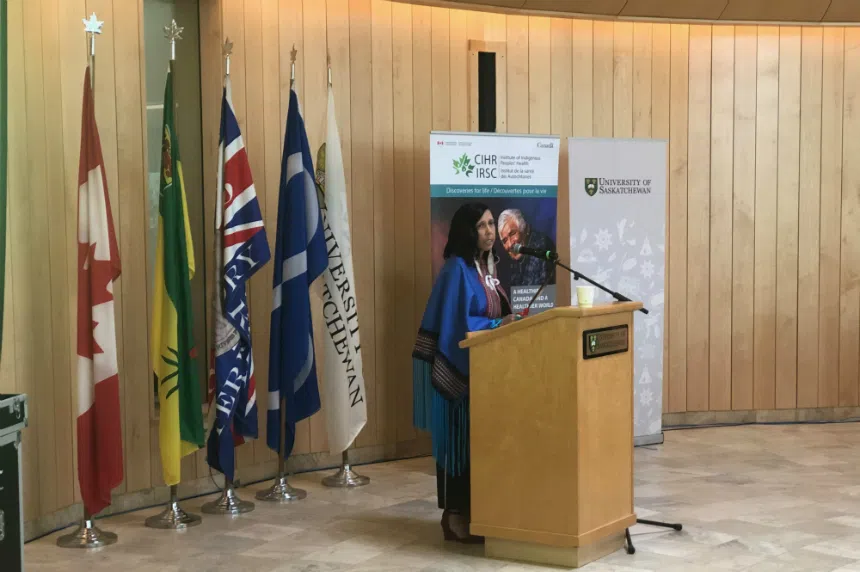A new five-year national plan was unveiled at the University of Saskatchewan Thursday morning, which focuses on Indigenous health.
The roughly $43 million research investment plan of the National Institute of Indigenous Peoples’ Health (IIPH) is focused on supporting Indigenous people and their communities.
The community aspect was a key goal in the project, which will run until 2024.
A significant change will be to flow the Canadian Institutes of Health Research (CHIR) funding directly to Indigenous communities, rather than requiring them to partner with universities.
“Communities not only know all of the health issues that they’re facing, they have the solutions. I think it’s important for us to start asking them,” said Scientific Director of IIPH, Dr. Carrie Bourassa. “Let’s be the facilitator to address those, instead of us trying to come in with the answers.”
The research plan took two years to form, where they engaged with grassroots community members, organizations and researchers across Canada.
Last fall, the IIPH moved from Sudbury, Ontario to the University of Saskatchewan.
Bourassa felt that the University was building its research capacity, as well as looking to attract Indigenous researchers.
“I felt that (the U of S) would be a very good match with the priorities of our institute,” she said. “To me, that aligned very well and I felt that the (IIPH) would grow here.”
Margaret Kisikaw Piyesis, CEO of the All Nations Hope Network in Regina, also supported the way the IIPH focused on the community aspect of research.
“It’s very important for the communities. They have the solutions for what they face today as Indigenous people on this land. It’s important as we move forward, that those questions of research come from Indigenous people, and that we seek those solutions on our own terms.”
The IIPH is the first federal health research funding institute in the world dedicated to Indigenous Peoples’ Health.







